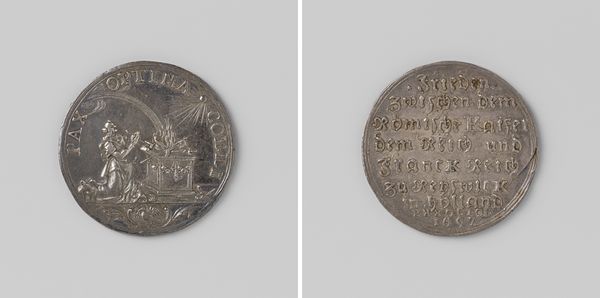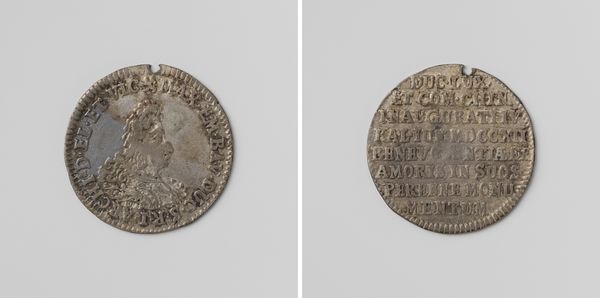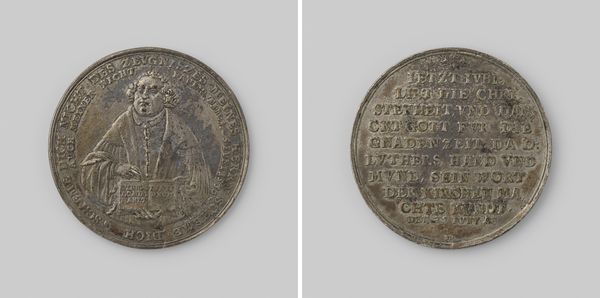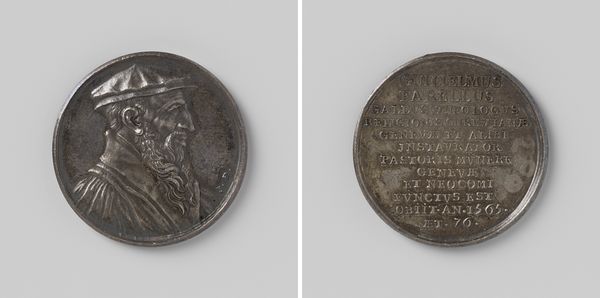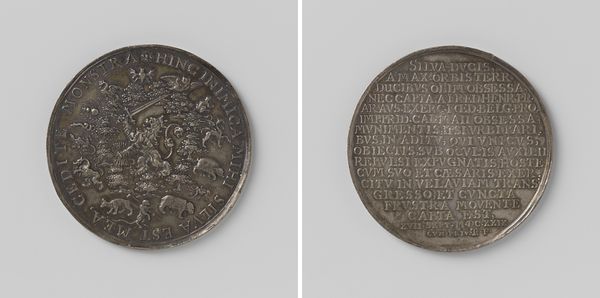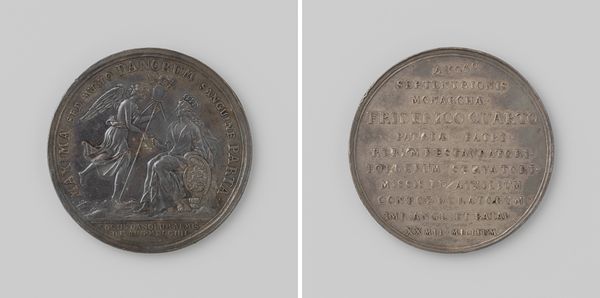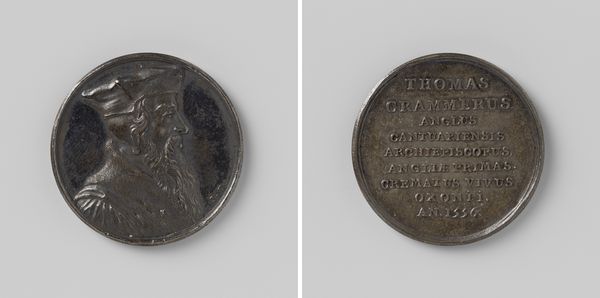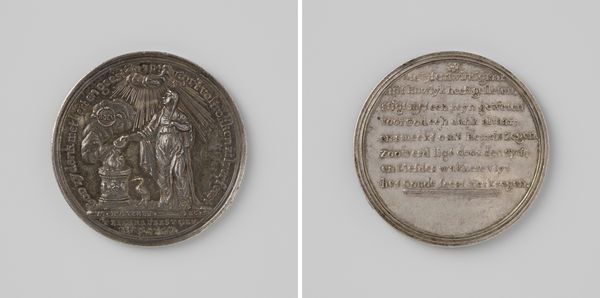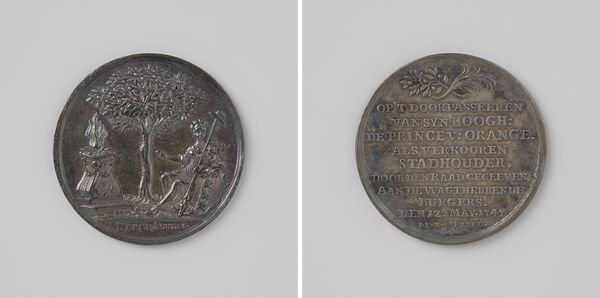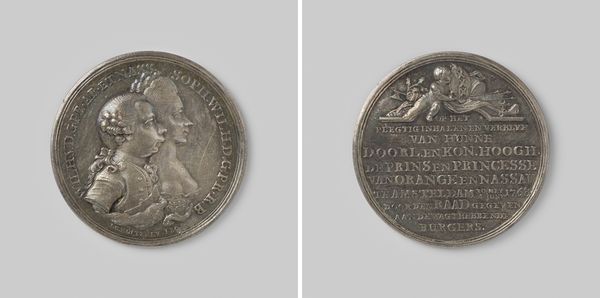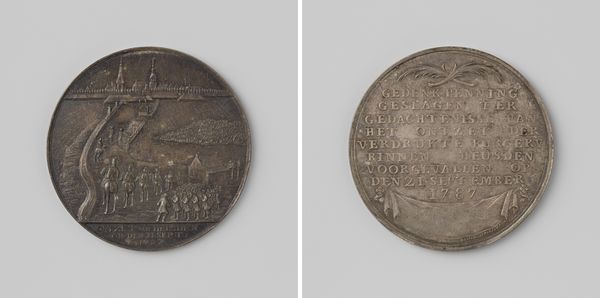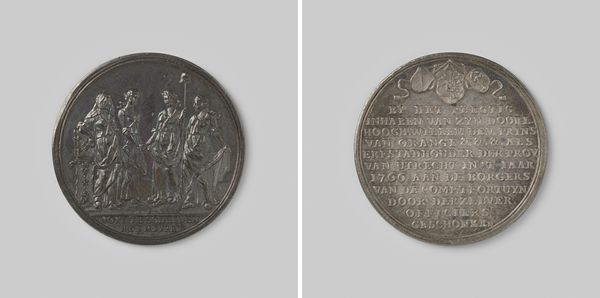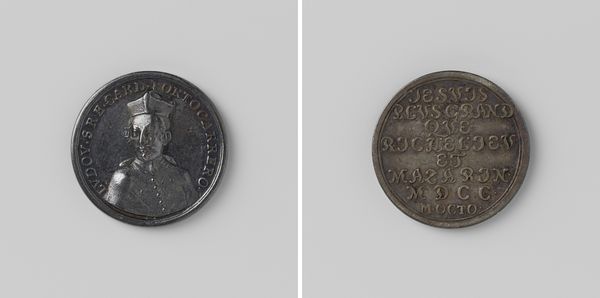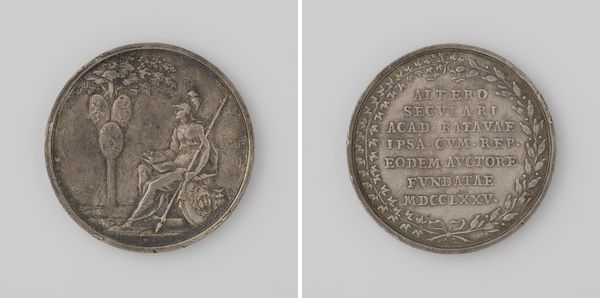
Dimensions: diameter 2.7 cm, weight 5.93 gr
Copyright: Rijks Museum: Open Domain
Jan Willem Marme made this silver medal in 1770. It commemorates the birth of Princess Louisa of Orange-Nassau. In 18th-century Netherlands, commemorative medals like this played a crucial role in shaping public perception of the ruling House of Orange. Visual codes, derived from classical antiquity, are used to represent the key themes of dynastic succession and divine blessing. An angel, symbolising divine favour, presents the newborn princess to her kneeling father, Prince William V. The inscription celebrates the ‘happy delivery’ of the princess, reinforcing the importance of royal progeny for the stability of the state. The commission of medals such as this were initiated by the political and cultural institutions, with the aim of creating a consensus around the House of Orange. To understand this medal better, we could look at archival documents, political pamphlets, and other visual representations of the House of Orange to better understand the medal's meaning.
Comments
No comments
Be the first to comment and join the conversation on the ultimate creative platform.
